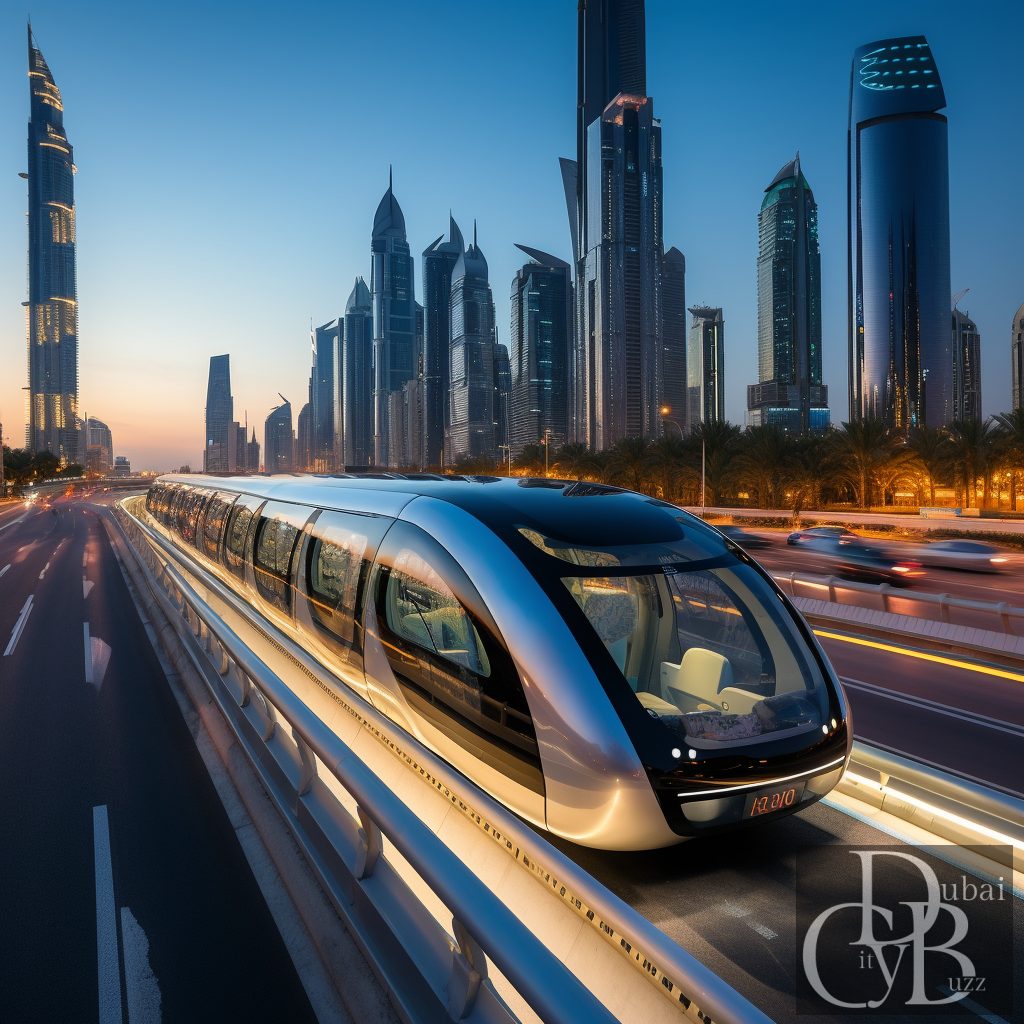
Dubai, the glittering jewel of the United Arab Emirates, is no stranger to ambitious projects and cutting-edge technology. Over the years, this futuristic city has consistently pushed the boundaries of innovation, transforming its landscape with awe-inspiring skyscrapers, artificial islands, and high-speed transportation systems. Among its many ambitious endeavours, Dubai has set its sights on revolutionizing transportation through the integration of self-driving vehicles into its infrastructure. This article delves into Dubai’s vision for autonomous transportation and how it is paving the way for a future where self-driving vehicles are the norm.
The Need for Autonomous Transportation
Dubai’s ambitious vision for autonomous transportation is rooted in several pressing needs:
- Congestion Reduction: As one of the fastest-growing cities in the world, Dubai faces ever-increasing traffic congestion. Autonomous vehicles promise to optimize traffic flow, reduce gridlock, and improve overall transportation efficiency.
- Safety Enhancement: Self-driving cars are equipped with advanced sensors and artificial intelligence, making them safer than human-driven vehicles. Dubai aims to significantly reduce road accidents and fatalities by promoting autonomous transportation.
- Environmental Sustainability: The UAE is increasingly committed to sustainability. Autonomous electric vehicles can help reduce emissions and dependence on fossil fuels, aligning with Dubai’s environmental goals.
- Enhanced Mobility: Autonomous transportation can provide accessible mobility solutions for individuals with disabilities, the elderly, and those who cannot drive due to various reasons.
Dubai’s Initiatives and Partnerships
Dubai’s journey toward autonomous transportation is marked by strategic initiatives and partnerships:
- Autonomous Mobility Strategy 2030: Launched in 2017, this strategy aims to make 25% of all transportation in Dubai autonomous by 2030. It outlines a phased approach for the integration of self-driving vehicles into public transportation and logistics.
- Dubai Autonomous Transportation Strategy: Under this strategy, Dubai plans to deploy autonomous vehicles across various sectors, including taxis, buses, delivery services, and freight transportation.
- Dubai Future Accelerators: This program invites startups and technology companies to collaborate with government agencies on innovative projects, including autonomous transportation solutions.
- Partnerships with Leading Tech Companies: Dubai has forged partnerships with tech giants like Tesla, Waymo, and Uber to test and deploy self-driving vehicles in the city.
Autonomous Vehicles in Dubai
Dubai has made significant strides in testing and deploying autonomous vehicles:
- Autonomous Taxis: In 2018, Dubai introduced the world’s first autonomous taxi service, operated by the Roads and Transport Authority (RTA). Passengers can use the RTA’s app to book self-driving taxis for convenient and safe transportation.
- Autonomous Buses: Dubai’s RTA has also launched pilot projects for autonomous buses that serve specific routes. These buses are equipped with advanced technology, including sensors and cameras, to navigate traffic and obstacles safely.
- Autonomous Delivery: Dubai is exploring the use of autonomous vehicles for delivery services. Companies like Amazon and FedEx have partnered with Dubai authorities to test autonomous delivery solutions, potentially revolutionizing the logistics industry.
Challenges and Future Prospects
Despite its ambitious vision, Dubai faces several challenges in realizing the full potential of autonomous transportation:
- Regulatory Framework: Developing comprehensive regulations and standards for autonomous vehicles is a complex task that requires careful consideration of safety, liability, and infrastructure requirements.
- Public Acceptance: Convincing the public to trust self-driving vehicles is an ongoing challenge. Dubai is actively involved in public awareness campaigns and education to build trust in autonomous transportation.
- Infrastructure Development: To support autonomous vehicles, Dubai needs to invest in advanced infrastructure, including smart roads, traffic management systems, and charging stations for electric vehicles.
- Cybersecurity: As self-driving vehicles rely heavily on technology and connectivity, Dubai must prioritize robust cybersecurity measures to protect against potential cyber threats.
Conclusion
Dubai’s vision for autonomous transportation represents a bold step toward a future where self-driving vehicles play a central role in urban mobility. By embracing cutting-edge technology, fostering strategic partnerships, and implementing forward-thinking initiatives, Dubai is not only addressing its immediate transportation challenges but also paving the way for a more sustainable, efficient, and safer transportation ecosystem. As Dubai continues to push the boundaries of innovation, the world watches in anticipation of the city’s transformation into a hub for autonomous transportation solutions.





